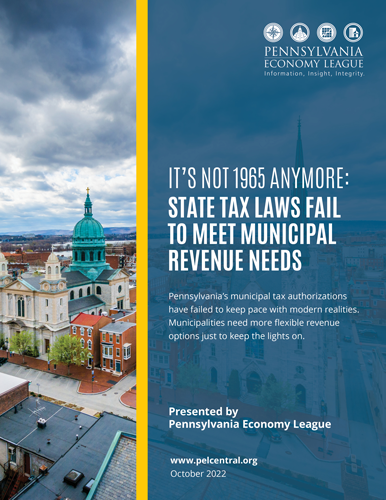Source: Pennsylvania Economy League
It’s Not 1965 Anymore: State Tax Laws Fail to Meet Municipal Revenue Needs
The Pennsylvania Economy League, supported by the Pennsylvania Municipal League (PML), demonstrates through data and case studies how municipal tax laws enacted by the state in the 1960s fail to grow with inflation or recognize modern realities such as:
- Population shifts and suburban sprawl
- Aging housing stock in core communities
- Growing cost of municipal services
- Increases in tax-exempt properties
As a result, many municipalities find it increasingly difficult to pay for services that we all rely on like police, fire and public works.
“As mayor of Lancaster, I get to celebrate the many successes of our city, but looming over our progress is a structural deficit that can undermine our success,” PML President and Mayor Danene Sorace said. “Lancaster is not alone in this struggle. Pennsylvania’s municipalities are waiting on action from Harrisburg to avoid crippling financial strain.”

The report outlines:
- What tax sources fail to generate income
- Problems with overreliance on property taxes
- How municipalities struggle to cope with the lack of revenue
- Recommendations for modernizing the system
“To make our Commonwealth truly economically competitive, we must give local leaders a menu of revenue options that steers us away from nearly total reliance on property taxes,” PML Executive Director John Brenner said.
Case Studies
- Altoona City
- Bradford City
- Lancaster City
- Lock Haven City
- Hermitage City
- Indiana Borough
- Upper Chichester Township
Read It’s Not 1965 Anymore: State Tax Laws Fail to Meet Municipal Revenue Needs